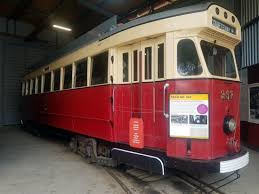Wellington: The Heart of New Zealand’s Culture and Innovation

Introduction
Wellington, the capital city of New Zealand, is a hub of culture, innovation, and scenic beauty. Known for its picturesque harbour, impressive culinary scene, and vibrant arts community, Wellington plays a crucial role in the nation’s identity. As the political centre of the country, it hosts the New Zealand Parliament and is home to numerous national museums and institutions. Its importance is further highlighted in recent years with a surge in events aimed at boosting its global profile, making it a focal point for tourism and local pride.
Key Highlights of Wellington
Wellington is often referred to as the “coolest little capital in the world,” a title it embraces with its eclectic mix of features. The city is renowned for its coffee culture, with a multitude of cafes offering expertly brewed coffee from locally roasted beans. This year, Wellington was ranked among the world’s top five coffee cities in a report by International Coffee Review.
The city’s culinary landscape is diverse, featuring an array of restaurants showcasing both local and international cuisine. In 2023, the Wellington Food Festival attracted thousands of visitors, celebrating the region’s unique flavours and fostering community engagement.
Cultural Significance
The flourishing arts scene in Wellington is another defining characteristic of the city. It is home to the Wellington Arts Festival, which returned in 2023 after two years of cancellations due to the COVID-19 pandemic. The festival featured live performances, art installations, and workshops, solidifying the city’s status as an artistic hub.
Furthermore, Wellington houses several notable institutions, including the Museum of New Zealand Te Papa Tongarewa, which has gained international recognition for its interactive exhibits and comprehensive coverage of New Zealand’s cultural heritage.
Challenges and Future Prospects
Despite its many advantages, Wellington faces challenges, particularly relating to housing affordability and urban development. The city council is actively working to address these issues through various initiatives aimed at improving infrastructure and fostering sustainable growth. Additionally, Wellington continues to promote itself internationally, aiming to become a leading destination for business and tourism alike.
Conclusion
As Wellington evolves and adapts to contemporary challenges, its charm and capacity to innovate remain at the forefront of its identity. It serves as a microcosm of New Zealand’s spirit—dynamic, resilient, and culturally rich. For visitors and residents alike, Wellington is not just a place to live or visit, but a vibrant community that continues to inspire creativity and connection in an ever-changing world.









